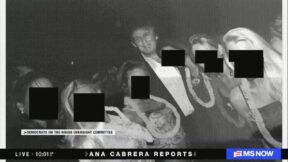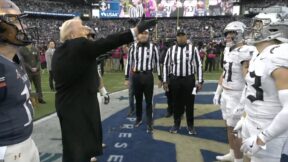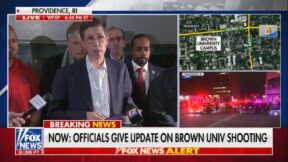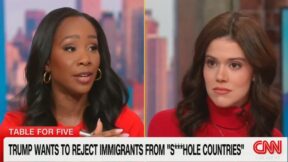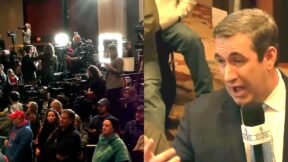Filmmaker of Roger Stone Documentary ‘A Storm Foretold’ Warns of 2024: Americans Must ‘Brace Themselves For a Very Turbulent Time’
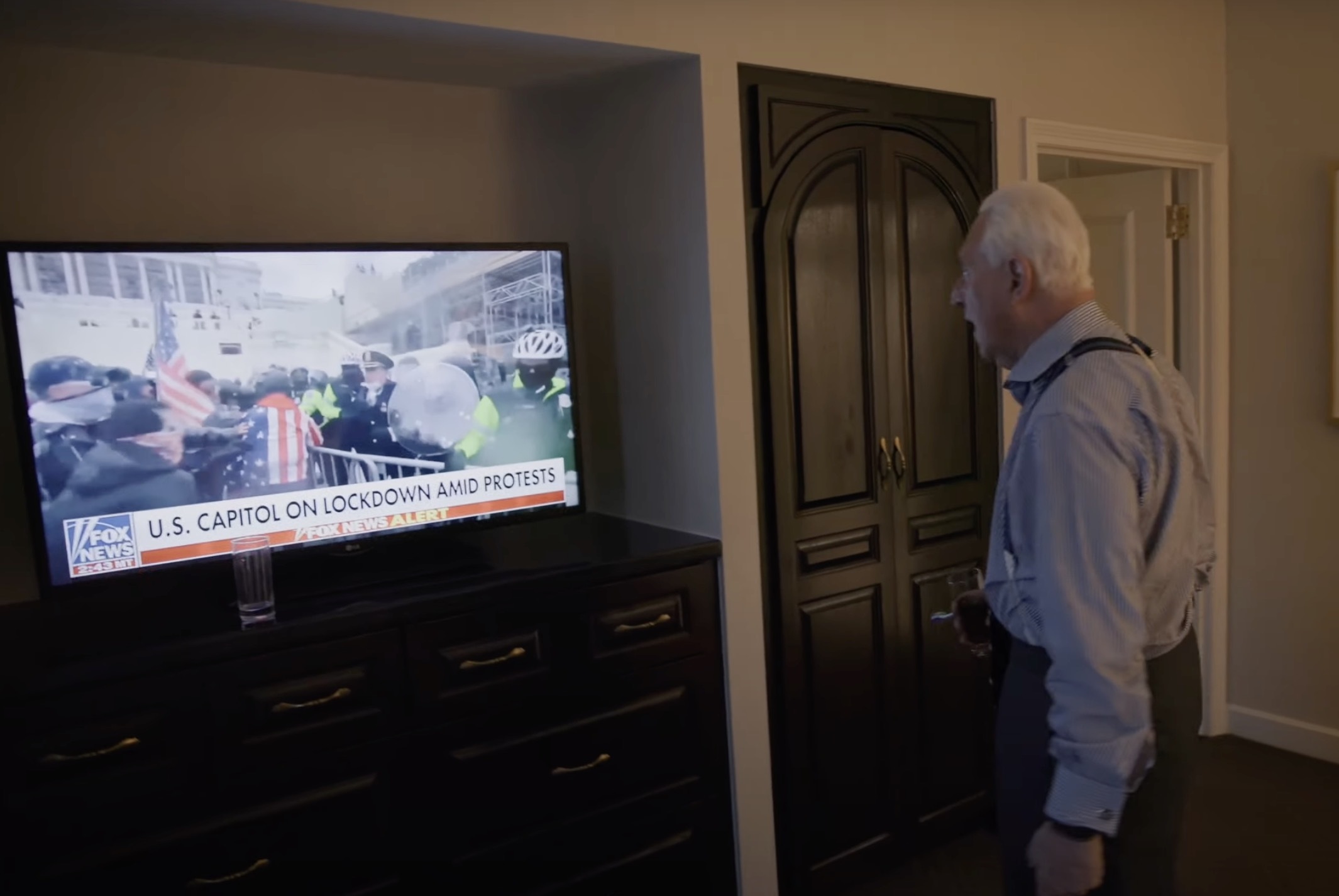
Image via A Storm Foretold
The Justice Department investigation into the January 6 riot at the U.S. Capitol has led to charges for more than 1,110 people there that day. This month, Trump and 18 other defendants were indicted in Georgia over their attempts to overturn the 2020 eletion, an effort that culminated in the explosive riot.
One figure who played a pivotal role in Trump’s post-election efforts but who has not faced charges: Roger Stone, the veteran political operative and self-described “dirty trickster.”
Stone’s involvement in the so-called “Stop The Steal” movement, which erupted in the violent riots of January 6, is chronicled in a new documentary, A Storm Foretold, from filmmakers Christoffer Guldbrandsen and Frederik Marbell.
Gulbrandsen sat down with Mediaite’s Diana Falzone on this week’s episode of The Interview podcast to discuss what they found when they turned their cameras on Stone in the wake of the 2020 election — and Gulbrandsen’s prediction that Americans should “brace themselves for a very turbulent time.”
In the aftermath of the riot, the Danish film team was asked to turn over video evidence to the January 6 Committee. After extensive negotiations, they released 10 minutes of footage for review, a decision Gulbrandsen said he came to after reluctantly accepting the panel as a “bi-partisan” unit.
The clips showed Stone making a comment that is now infamous in a conversation with Trump attorney David I. Schoen: “Fuck the voting, let’s get right to the violence. Shoot to kill.”
The film ultimately paints a disquieting image of the way injustice is legitimized through coordinated political action, and the unnervingly tenuous state of global democracy.
Listen to the full episode with Gulbrandsen and Falzone here — and read excerpts from the conversation below.
This episode was produced by Payton Selby and Brad Maybe.
On A Storm Foretold
I think it’s about American democracy in crisis and democracy everywhere in crisis. And then more specifically, it is about Roger Stone. It’s an observational documentary where we follow Roger Stone from way back in ’19 until Biden’s inauguration. So it includes the whole Stop The Steal Movement, how it arose, how it came about, and eventually the attack on January six, the efforts afterward for Russia to get away with it, and his efforts to try and get a second pardon for Trump.
On Roger Stone
He’s a human being. You cannot boil him down into a sentence. I mean, he’s like the rest of us, full of flaws and good character traits as well. I’m averse to judging people categorically, even when they’re involved in the overthrow of a legitimately elected government. I mean, it’s for each one to make up their own mind and make their moral judgments. As someone who makes films about this, I don’t want to be a detective. Of course, this is my interpretation of the events I saw. But I really hope that audiences will make their own moral judgments.
On violence in American politics
FALZONE: Were you shocked to see integral players in the Trump Circle calling for violence over the 2020 election results?
GULBRANDSEN: I can’t say that I was. When we arrived at the election, most Americans and people outside the country that followed the developments had heard pretty much everything. So it wasn’t as much the threats and all that bravado going on. It was more to witness it actually being materialized. […] If I made this documentary in an African country, I would not have hesitated for a moment to call it a coup d’état or an attack on democracy. But because it happens in the most powerful and influential modern democracy in the world, I think, like many other people, I feel a reluctance to call it for what it is. But that was what we saw unfolding. And I think that stunned me.
On his contact with Roger Stone
FALZONE: Are you still in contact with Roger Stone?
GULBRANDSEN: No, when we collaborated with the January 6th Committee and when we traveled to D.C., and some of our clips were shown at the last hearing, we received a cease and desist letter from his lawyer, and he did make some postings calling us all sorts of things and predicting my untimely death. But of natural causes, I should insist. So we haven’t really communicated since except with the lawyers.
On agreeing to testify before the January 6th committee
My approach is pretty old school, so it took a lot of social soul-searching to contribute to that committee process. At first, I declined, but as I saw how it developed, I have to say I thought that committee’s work was brilliant. I was surprised about their ability to have all these witnesses, primarily almost all Republican. I think what they managed to disclose was astonishing and extremely important for history. So initially, as a journalist, you have a knee-jerk reaction. I wanted to stay in my own lane. But I couldn’t find an argument against showing clips that we had made that were important to a fact-finding mission about what had happened on January six so it could be avoided in the future. That was the one factor. Another factor was, of course, that I was subpoenaed. And the third factor was that I accepted the premise that it was a bi-partisan committee.
Download the full episode here, and subscribe to The Interview on Apple Podcasts or Spotify.
